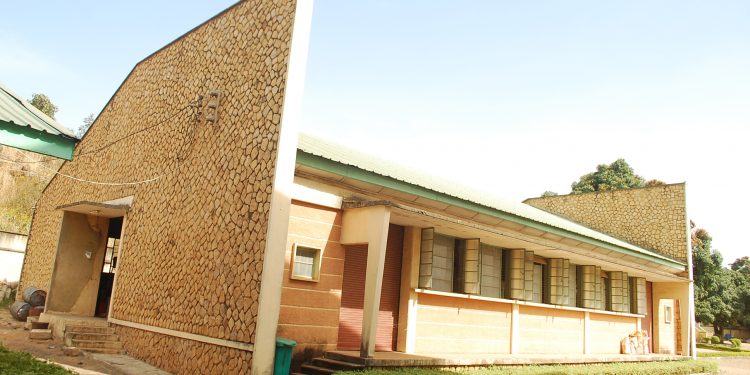The Institute was established by the Federal Government of Nigeria as a centre of excellence for professional training and Research in all aspects of Mining and Geosciences. The Institute is equipped with facilities required for acquisition of practical skills in Mineral resource development. It focuses on producing skilled manpower for the emerging Mining industry, and hence adopts deep, practical orientation by providing intensive field and laboratory trainings for all its students.
The Nigerian Institute of Mining and Geosciences’ vision is to be among the world’s best in manpower training and research in Minerals development; and a mission to be an international centre of excellence in the training of manpower and conduct of research in the exploration of Minerals for National development.
Following Nigeria’s discovery of its Mineral resource riches, even though largely unexploited, the inevitable conceptualization of an exclusive training Institute for Mines dated back to 1923 when the Mines Department was created with mostly expatriate professionals. There immediately arose the need to train local technical staff to assist the expatriates at the Mines. For this purpose, the School of Mines was established in Jos in 1952, later upgraded in 1958 to include Mining Technology in general with a Diploma Certificate issued to graduating students.
In 1995, a committee of eminent persons set up by the Federal Government to produce a Solid Mineral policy for the country recommended that the Institute should engage in training higher level manpower by addressing the gaps in the training of Mining Engineers in the Universities and Polytechnics and that it should run courses not usually covered in the routine curricula of the Universities; it should also provide further field and laboratory exposure for University teachers and postgraduate students in Mining and Geosciences. Courses to be taught included those not usually covered in the routine curricula of Universities in the realms of Gemology, Lapidary, Mines instrumentation, Mines ventilation, Mineral Economics and Mining law, among others. Laboratory services for Rocks, Mineral identification and beneficiation should also be provided for use by both public and private sectors alike. This would not only fill the gap in the professional training of Mining Engineers and Geoscientists through remedial courses and enhanced exposure, but also further provide a link between the trainers and the employers of graduating Students. It would thus complement the research and development efforts of the private Mining companies. For the Universities and similar research Institutions established for this purpose to reflect this new dimension, it was proposed that the name of the Institute which used to be the National Mining and Geological Institute be changed to the Nigerian Institute of Mining and Geosciences. This was promptly adopted.
The Origin of the National Institute of Mining and Geosciences can therefore be traced directly to the evolution of the School of Mines opened in 1952 as an educational centre for training local technicians to backup the expatriate Mining professionals and later as an in-house training centre for the then Mines Department.
In the early 80s, a site for the National Mining Institute was demarcated along Zaria road, Jos. After preliminary preparations for site survey, the then Plateau state Government re-allocated the land for Jos stadium and resettled the Institute at its present permanent site along Miango Road, opposite the Jos Wild Life Park. The institute was charged with the following obligations:
- To produce a new class of highly trained and professionalized Mining Engineers and Geoscientists with practical exposure and technical skills required to prepare them adequately for the new developments in Nigeria’s Mining Industry.
- To provide practical laboratory and field exposures to University lecturers and postgraduate Students in Mining and Geosciences.
- To conduct focused need-driven research in Mining and Geosciences.
- To conduct research in exploration, extraction and value addition, including the development of simple equipment and tools for the industry, and constantly organizing short courses, workshops, conferences and seminars to train all stakeholders and advance informed knowledge on the realities and best practices in Mining.
Available Postgraduate Diploma (PGD) Programmers in NIMGS
- Mining Engineering
- Mineral Engineering
- Mineral Exploration



